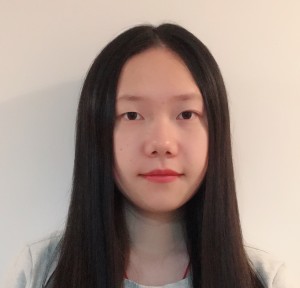AAYP 2017 Youth Ambassadors Scholarship

Onsang Yau
In that afternoon, with the dimming dusk lingering its final beam of light through the window, I realize that something is quietly elapsing from the deepest me, from the innermost past that I had tried to disguise, and from the undeniable root that was embedded into my veins—something, something that I once was so familiar with, that when I stood on the boundary between two different cultures, I had lost myself in a maelstrom of fright:
I am forgetting Chinese characters.
I was once a good writer in China. Chinese as my language made my thoughts to flow freely in the untouchable world I created—I bounced around with all my observations and inspirations that made my articles beautiful—but it had all changed from the day I began my high school life here, in America, as an ESL student.
“English as a Second Language” wasn’t something that I was proud of. It means that you are learning storybooks for fifth graders, words for middle school children, and essential materials in this country that everybody knows. From there, I concealed my enthusiasm of my culture to “blend in” a new environment. I told myself to embrace everything in this society to help me improve: I must get into honor classes, I must speak English with new friends, and I must abandon Chinese books that I loved so much in the past. All these “must” had changed my life, and I had absorbed new knowledge rapidly like a sponge immersed in seawater.
But I also feel the loneliness deep inside me that is tearing my flesh, telling me how nostalgic I am of my language, the language in my past, the language that accompanied me for 12 years, the language that witnessed every epitome in my life, with mirth and sadness blended through.
I know that I am lost in a labyrinth of helplessness, between my desire of my culture and my determination of growing up. All the intersections between Chinese and my life seem to be wiped off, and they will never be remembered because of their “incompatibility.”
So I ask myself: is it necessary to give up Chinese as a price of learning a new culture?
I watch the slight trembling of my fingers, for their loss of the ability to write many Chinese characters day by day. At that moment, I feel a scream echoes in my head that pushes me to stand up. It reminds me of the nights that I huddled in my bed, reading a love story in Chinese with its beautiful description of ancient China, and the poetic characters in their histories. I know there is something I must do to face my irresistible impulse in my heart that agonizes for my deliberate ignorance of Chinese culture—at that moment, I realize that I should be proud of my calling of two cultures, two cultures that made me today, that became two parts of myself that are inseparable throughout my life. I want to be the leader of my cultures, the leader of fusing two civilizations to remind people of their heritage, their origin, and their respects of the cultures they once lived with and are living with now. I want to stand up in front of people, telling them that I love Chinese, I love English, and I want to have them with me in my future because they deserve our recognition and pride.
Two weeks later, I began my work with a group of friends to create the first Chinese American Student Club in our high school. At the moment we wrote down the name of our club on the list, something began to gleam in our future— a future rises from the boundary of two different cultures, and their first interaction in our expectations of love and respect.
